Digital Field Guide
Paleontologist in your pocket

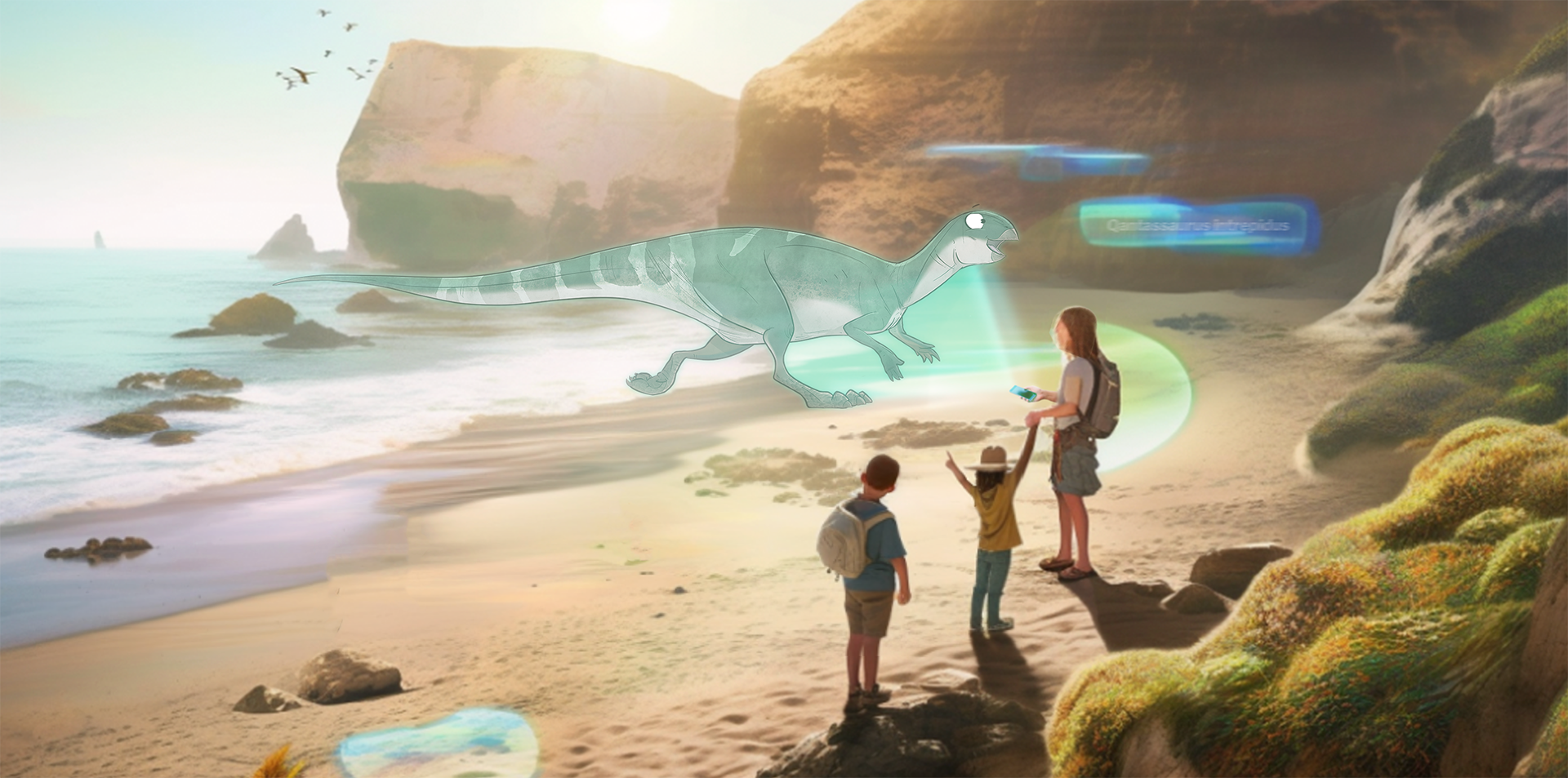




Visitors will use the digital field guide to activate augmented reality learning layers, discover points of interest, and track their progress through the Bass Coast dinosaur trail. It will act as the central hub for games, like the fossil hunt, and the trip map, that brings it all together.
The pieces that combine to deliver the technology layer allow for this, with flexibility and usability for creators and visitors front of mind. Running through that will be a consistent experience enabled by the Digital Field guide, a dynamic map guiding to points of interest, a jumping off point to games, audio and a wide variety of mixed media experiences.
"The digital field guide enables a visitor experience like no other. Being able to connect to information, games and stories of the coast, the deep history and culture. It also acts at the bedrock for the community stakeholders and scientists to grow that spatially anchored knowledge, forming a new shared fabric of digital story."
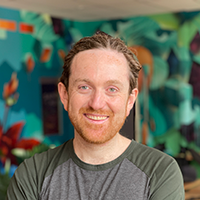
Phoria - XR Director
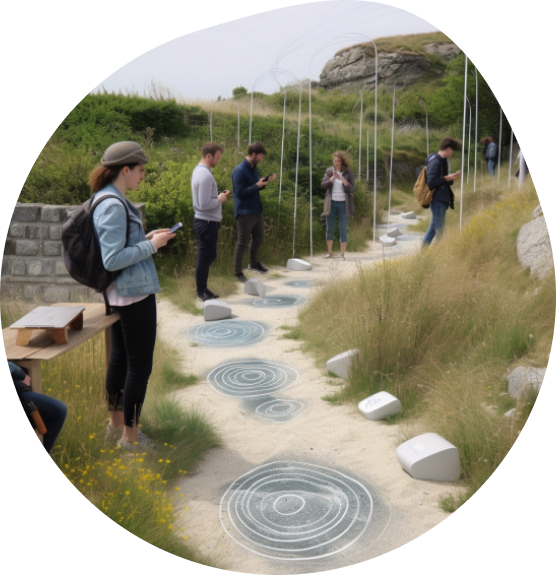
Each of the six sites along the Dinosaurs Trail have a ‘hero dinosaur’, discovered at, or near the site. The species help tell the story of each site and provide insights into the Bass Coast polar dinosaurs. At each site, visitors are given the challenge to locate the holotype fossil, the fossil used to originally identify the hero dinosaur. Embedded in rock, either a cast or carving, the fossils won’t always be easy to find. Once found, the fossil can be collected with digital field guide, then brought life, superimposed into the area right in front of them. As visitors progressively discover each hero dinosaurs, they will be able unlock additional features and content. The Hero Dinosaur Challenge will be an exciting feature along the entire Bass Coast Dinosaurs Trail, giving visitors the opportunity to become the palaeontologist.
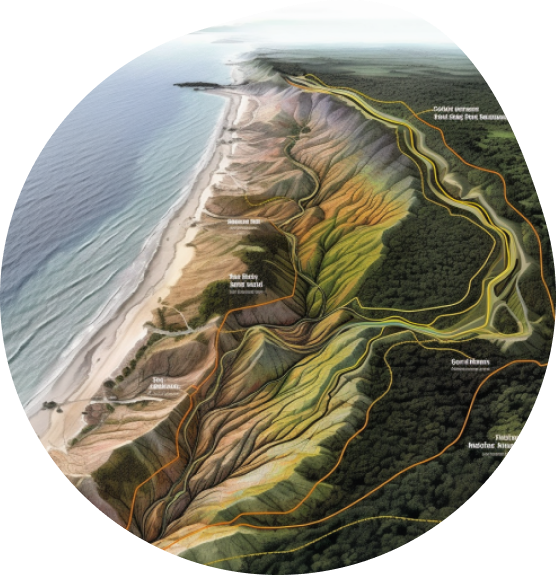
As visitors travel through the trail, they will be able to see their progress, showing completion of activities, discovery of collectibles, special offers and events. This map can be used to trigger location specific content, like augmented reality or audio experiences.
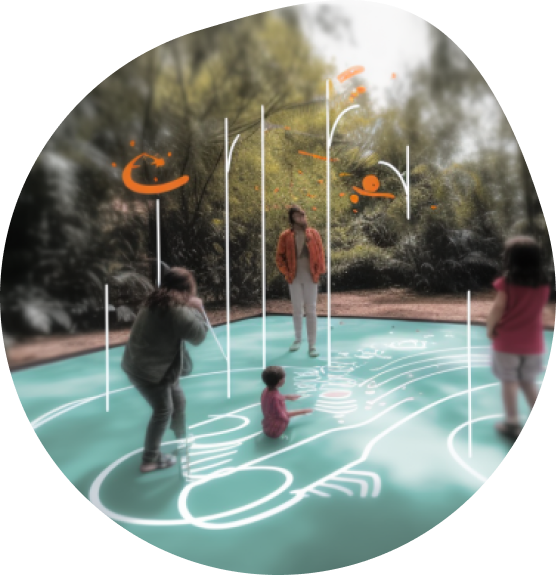
The digital field guide will lead users to key destinations, where the fossil finder experience will be triggered. When within the area, a visitor can switch to AR, and follow visual clues to discover the holotype fossil. When this is complete it will unlock an in world animation, showing the entire skeleton, and visual representations of its final form.
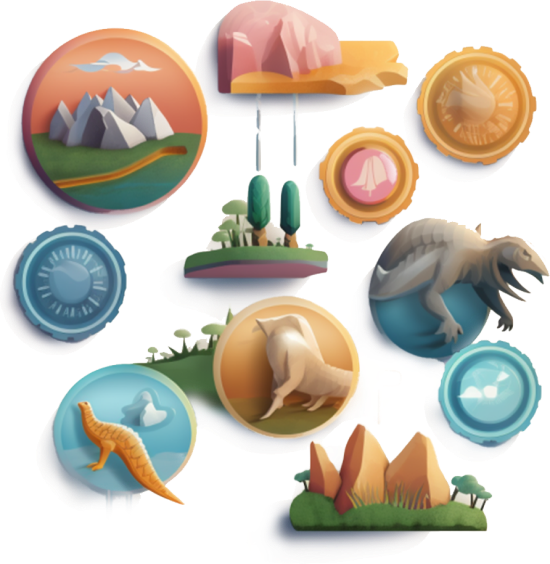
As visitors progress through different digital activities and activations, they will collect different souvenirs, tokens and digital artefacts to remember their progress. These artifacts may be used to replay animations, or possibly be tokens allowing access to future special events or offerings.
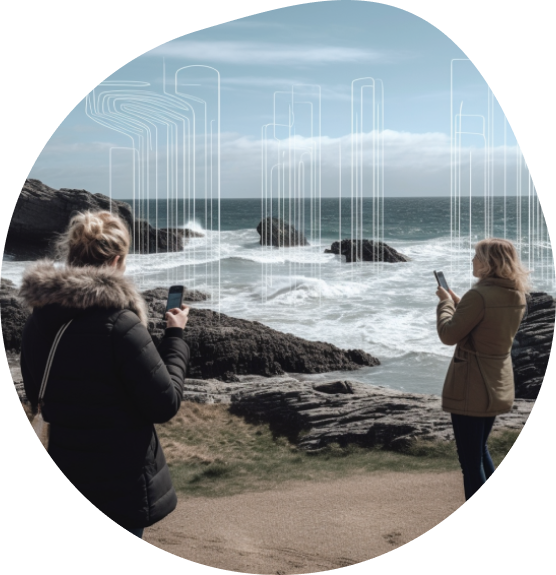
Immersive content can take many forms, and many traditional content types can be made immersive. The content system will allow creators to embed media in their site, from information digital signage, to rich 3D animations. This content can then be experienced on site, as an augmented reality experience, or remotely as a digital tour. The content will be handled flexibly, so can be repackaged and repurposed for different audiences. The system will allow for the addition of new content and capabilities incrementally over the years.
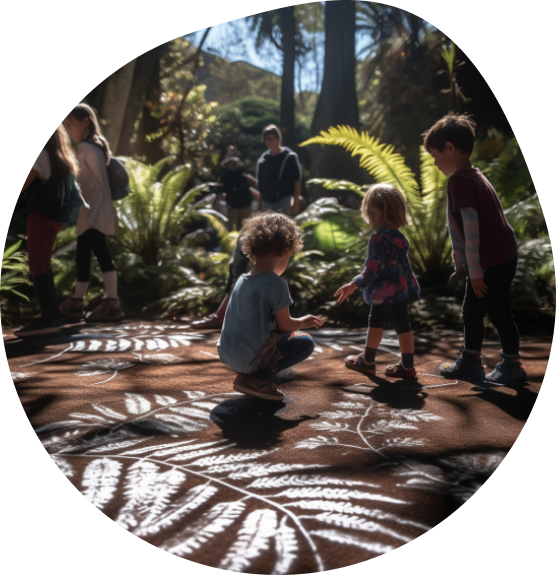
Across the destinations, things like sensors, and haptics will bring physical spaces to life. More advanced experiences could include LED displays integrated into sculpture, full body tracking creating truly reactive experiences.
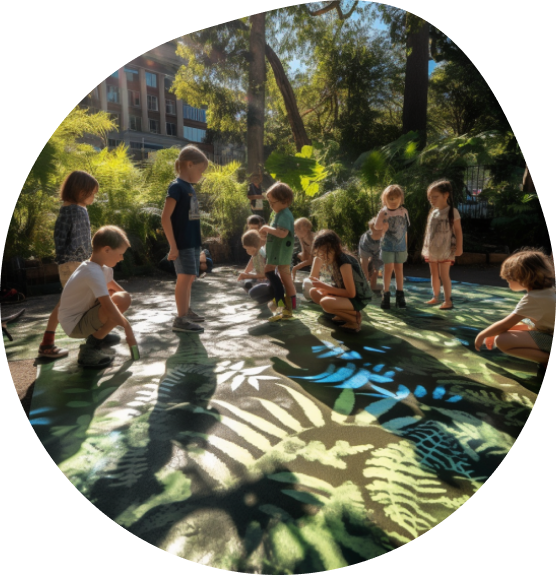
Sites can be augmented with things as simple as a sensor that triggers lighting changes and sound effects as children enter particular areas. A more complex experience might involve an LED screen and body tracker, where a user walking past, will see themselves stepping into a jurassic world.
Larger scale immersive experiences could include LED screens, full body tracking sensors, and interactive gameplay that will leave lasting memories and generate significant interest.

The time spent traveling to the trail, and in between each provides a valuable opportunity to further immerse visitors into the world of polar dinosaurs. A series of podcasts, welcome visitors to the Bass Coast and to each site along the trail. Between five and ten minutes in duration, the podcast extends the story told at each site. Accessed via the digital field guide, these podcasts add a depth and dimension to the onsite experience, providing up to date information, new discoveries and unique insights and perspectives from Traditional Owners, content experts, and artists.
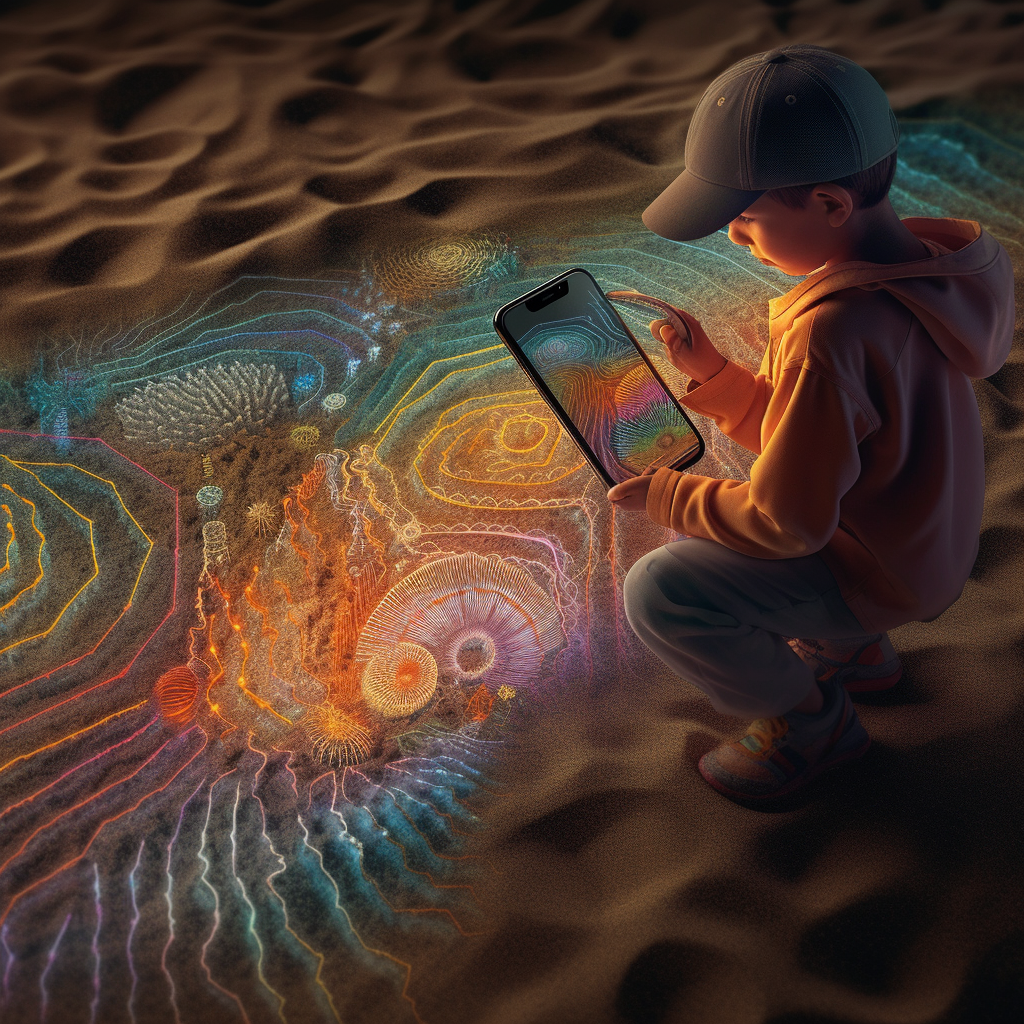
The Digital Field Guide will further augment the experience through providing access to rich layers of digital content at each site. Designed to be enable visitors to dig deeper into the stories at each site, the multimedia content layers include a range of media such as text, images, sound, video, and augmented reality. The content will be developed alongside the onsite experience during the detailed design phase of the project, creating a seamless and immersive experience.
